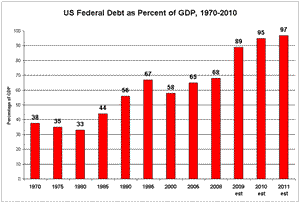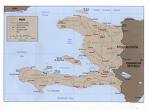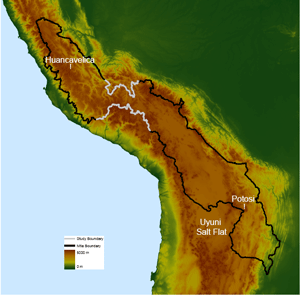We got some great comments in response to yesterday’s post How the war on AIDS was lost. Much of the debate centered around three questions:
1) Isn’t treatment complementary to prevention? And so there is no tradeoff?
While some agreed with the post’s overall assertion that prevention has been neglected in favor of treatment, Caitlin argued that this distinction is artificial: “in many places, the availability of treatment makes prevention possible.”
Gregg Gonsalves expanded: “ART can reduce viral load and transmissibility. In the absence of a vaccine or a microbicide and the difficulties in achieving behavior change in general in public health, can you afford to be so categorical about AIDS treatment? Might ART provision be an important part of HIV prevention strategies?”
OUR RESPONSE: We all agree that there should not be 100% of one and zero of the other. Beyond this, we disagree. Even if treatment does help prevention, this is only partial. (Treatment is not 100% necessary and sufficient for prevention). And they are still two separate goals. So there is still SOME tradeoff between efforts that target treatment and those that target prevention.
2) Do we know how to do prevention? If not, why not?
Uganda is often cited as a prevention success story, but Justin added that “there is still a lot of debate over what actually accounts for the Uganda decline in infections, but even if we could narrow down the cause, it may not be generalizable to other countries because of different patterns and cultural practices. And even in Uganda, the trend is reversing.”
One problem is that while treatment shows obvious, life-saving results, there is more room for human messiness and error with prevention. Unsurprised wrote: “Prevention cannot be bought with aid dollars…The problem is NOT that more financial resources have gone to treatment rather than prevention, but that no one—especially local leadership—has ever been serious about sending the necessarily blunt and uncomfortable messages it takes to get people to change their sexual behaviors.”
Avam pointed to the downsides of a development economics-centric approach, and others emphasized the power of locals rather than global “experts” in figuring out prevention for their own communities. Caitlin said that many communities did “figure out” prevention in their own areas, but that these gains were not sustained or brought to other communities.
OUR RESPONSE: These are all good points, and Aid Watch is very familiar with the ideas that (1) money alone does not solve problems, including prevention, and (2) solutions arise from local people and are specific to each area. Our point was that the international effort could have helped contribute advice to prevention programs, but it didn’t because treatment effort crowded out prevention effort. In fact, Helen Epstein and Daniel Halperin have offered insights like the effectiveness of male circumcision to lower transmission and the importance of multiple long-run sexual partners in transmission in Africa. The international AIDS effort ignored them for a long time and is still not serious about applying these insights.
3) Who are the “Searchers” and who are the “Planners” in the quest for more effective AIDS treatment and prevention?
Caitlin took the post to task for leaving out local community leaders' explanations of for how we got to where we are today. Gregg Gonsalves argued that the post pinned blame on well-known experts and funders, while “fail[ing] to acknowledge that most of the drive for treatment has been derived from local activism in Brazil and Thailand, first, then South Africa, then with help from activists most with small NGOs in the North…You ignore your own “searchers”– the “little” people who have been building up the AIDS response for 30 years and invest all the power in the planners…who come late into the game.”
OUR RESPONSE: You are right, I have been inconsistent about this. Solutions usually do arise from local searchers, and I should be more respectful of how the local treatment advocates responded to their own circumstances and found solutions, and I congratulate them on what they have achieved.
However, not all searchers have successful searches. Good economics and common sense should be injected into the debate that searchers participate in, and searchers are also influenced by the availability of resources and political capital. The result in AIDS is that there have been a lot of searchers in treatment, and far too few in prevention.
WE WONDER: Would treatment advocates now be willing to make a forceful statement about the critical urgency of prevention?
Lord Mark Malloch Brown, the former UN deputy secretary-general and one-time UNHCR staff member, was among those who have taken the run this week.... "this is a compelling way to remind one of what it's like," he said, after completing the hour-long exercise. "I felt helpless all the time, and very exposed," he added.
 From Aid to Equality
From Aid to Equality










